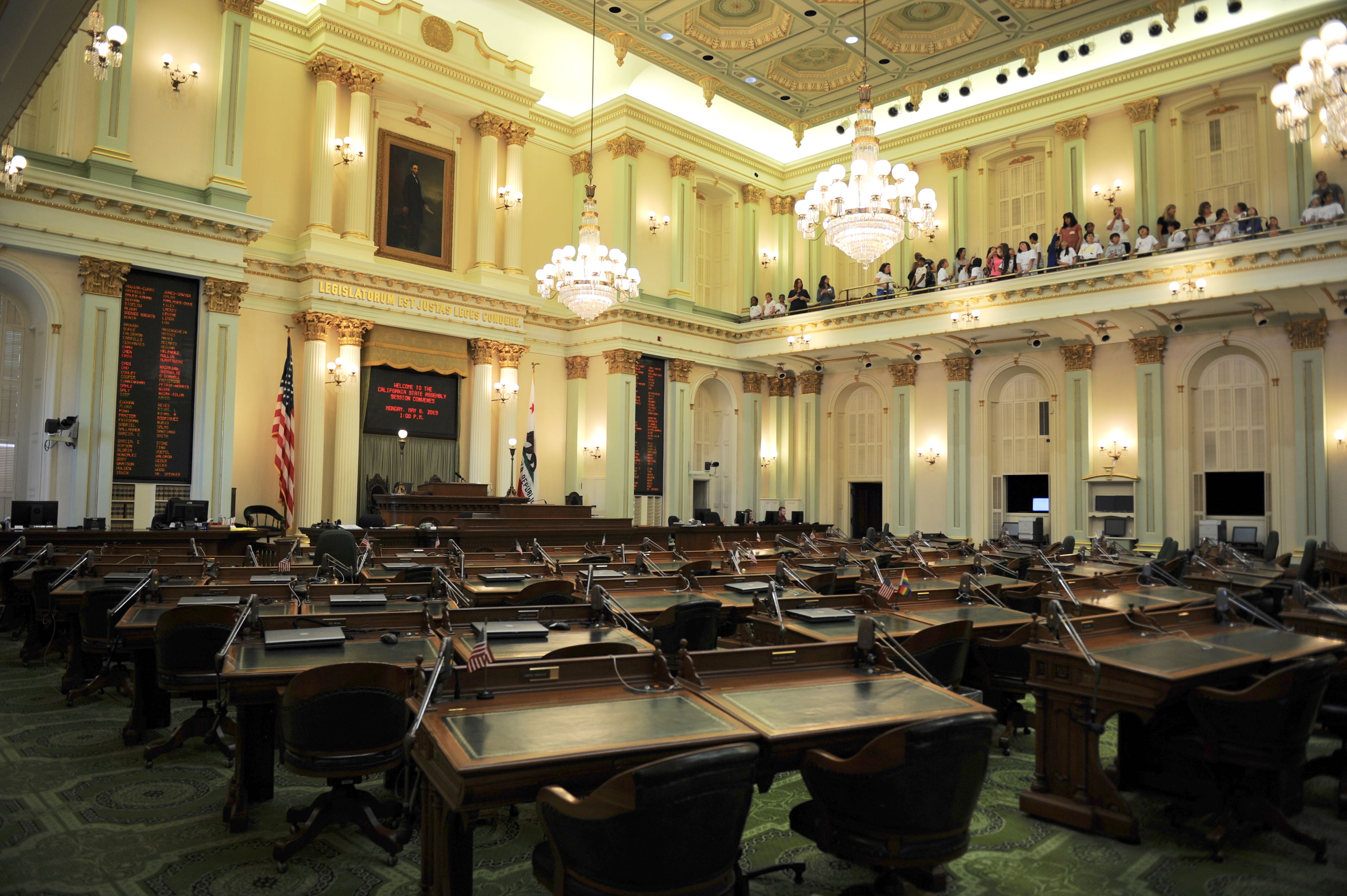
Justice Court. (Photo: Nirat.pix/Shutterstock)
California Courts and Sunset Clauses in Statutes
A sunset or repeal date will be given effect by the courts as set forth in the statute
By Chris Micheli, December 20, 2024 2:30 am
Sunset clauses, or more properly “repeal clauses,” are used when the Legislature sets a finite time period for a statute to be “on the books.” The repeal date (or more commonly called a sunset date) is set forth in statute for when the law expires, or when it is repealed by law. As you may imagine, there are several appellate court decisions in California dealing with repeal clauses.
For example, in Mundy v. Superior Court (People) (1995), the appeals court dealt with 1990 legislative amendments in which individual sunset clauses were included in three statutes which provided for the provisions to expire on January 1, 1994, without any reversion. As a result, the 1990 amendments repealed the blanket sunset provision.
The court explained, “The primary consideration militating against this interpretation is that ‘repeals by implication are disfavored, being recognized only if two apparently conflicting laws cannot be harmonized. [Citations.] We are bound to maintain the integrity of both statutory provisions if the two can stand together. [Citation.]’” (In re Manuel L. (1994) 7 Cal. 4th 229, 235-236)
“The blanket sunset clause and the 1990 sunset provisions are consistent to the extent they contain January 1, 1994, expiration dates. Thus, the Legislature logically may have thought it unnecessary to reiterate the previously stated reversion language in 1990. Nonetheless, the Legislature did reaffirm the original blanket clause in 1991. Under this most recent expression of legislative intent, the subject provisions are to be interpreted on January 1, 1994, ‘as they read on December 31, 1988[.]’ (See Stats. 1991, ch. 641, § 14.) Accordingly, we find the Legislature contemplated and intended the revival of the Condit law on January 1, 1994.”
The appeals court’s decision In re Pedro T. (1994), dealt with a 1989 amendment of Vehicle Code Section 10851, effective January 1, 1990, “to increase the maximum punishment for vehicle theft from three years to four. (Stats. 1989, ch. 930, § 11, p. 3259.) The 1989 legislation provided that the lesser, pre-1990 punishment would be reinstated as of January 1, 1993, unless the Legislature, before the latter date, otherwise directed. (Stats. 1989, ch. 930, § 12.5, p. 3266.) The Legislature did not so direct. Accordingly, the lesser punishment was reinstated as provided in the 1989 statute.”
The appellate court explained, “This case presents the question whether one who committed vehicle theft during the effective period of the provision for increased punishment, but whose conviction for that offense was not yet final as of the ‘sunset’ date of that provision, can be sentenced thereunder. We answer this question in the affirmative, and conclude that In re Estrada (1965) 63 Cal. 2d 740, cited as authority for a contrary position, does not govern this case. Thus, we affirm the judgment of the Court of Appeal.
“The minor contends that once the sunset provision of the 1989 statute took effect, and the version of Vehicle Code Section 10851 operative when the offense was committed expired pursuant to its terms, the ameliorative effect of the reinstated lesser punishment inured to the benefit of all persons, such as himself, whose convictions under the 1989 statute were not yet final. In support of his contention, he cites our decision in In re Estrada, supra, 63 Cal. 2d 740 (Estrada), certain legislative history, and Government Code section 9611.
“Estrada, supra, 63 Cal. 2d 740, involved a prosecution for escape in violation of Penal Code section 4530. When the petitioner in Estrada committed the crime of escape, section 4530 provided that an escape or an attempted escape was punishable by at least a one-year period of imprisonment, to commence from the time the prisoner would otherwise be discharged from prison. (63 Cal.2d at p. 743.) At that time, Penal Code section 3044 provided that no person convicted of an escape could be paroled until he had served at least two calendar years after his return to prison after the conviction. (63 Cal.2d at p. 743.) After the petitioner’s escape, but before his conviction and sentence, Penal Code sections 3044 and 4530 were amended to reduce the penalties formerly imposed for escapes committed without force or violence. The petitioner in Estrada contended he was entitled to the benefit of the ameliorative amendments.
“We agreed. ‘The problem, of course,’ we observed, ‘is one of trying to ascertain the legislative intent-did the Legislature intend the old or new statute to apply? Had the Legislature expressly stated which statute should apply, its determination, either way, would have been legal and constitutional. It has not done so.’ (Estrada, supra, 63 Cal.2d at p. 744.) We looked to other considerations. ‘Paramount’ among them was an appreciation that ‘[w]hen the Legislature amends a statute so as to lessen the punishment it has obviously expressly determined that its former penalty was too severe and that a lighter punishment is proper as punishment for the commission of the prohibited act.’ (Id. at pp. 744-745.)
“We found ‘inevitable’ the inference the Legislature must have intended that the new statute, imposing the new, lighter penalty the Legislature thenceforth deemed sufficient, apply in every case to which it constitutionally could apply. (Id. at p. 745.) fn. 1 Thus, the amendatory act, we concluded, should apply to crimes committed before its effective date, provided the judgment of conviction is not yet final. (63 Cal.2d at p. 745.)
“Here, in temporarily increasing the penalties for vehicle-taking, the Legislature determined the public safety required a three-year test of stricter punishments. In a preface to the statute, we find the following statement of purpose: ‘The Legislature finds and declares that the rapid increase in motor vehicle theft has reached crisis proportions …. [T]he escalating problem of vehicle theft is nurtured by the lack of any serious deterrent to this crime…. [¶] … [T]he Legislature believes that it is in the best interest for public safety to enhance the penalties for the crimes of vehicle theft and receiving stolen vehicles.’ (Stats. 1989, ch. 930, § 1, pp. 3246-3247.) Far from determining that a lesser punishment for vehicle theft would serve the public interest, the Legislature expressly declared that increased penalties were necessary. Estrada is not implicated on these facts.
“Our conclusion is reinforced by consideration of the practical effect of a contrary rule. The utility of a three-year legislative experiment in enhanced penalties might be seriously undermined if those penalties, instead of applying to all offenders during the three years, could be imposed only on those whose convictions became final before the sunset date. The Legislature could reasonably assume that for a deterrent to work it must operate long enough and consistently enough to convey to the public an understanding that the heavier penalty will apply during the stated effective period of the legislation. Yet under the construction the minor urges, the three-year period would in effect be reduced to something indeterminate and much less, i.e., that period of time following the effective date of the amendment in which any particular conviction that occurred could become final before expiration of the three years. (See In re Pine (1977) 66 Cal. App. 3d 593 [a judgment is not final until the time for petitioning for a writ of certiorari in the United States Supreme Court has passed].) The validity, moreover, of any conclusions to be drawn from an experimental study of the deterrent effect of enhanced penalties could be weakened by the under inclusiveness of a sampling of offenders comprised only of those whose convictions happened to become final before the sunset date of the increased penalties.
“Similarly unpersuasive is the fact the Legislature twice extended, and then repealed, the sunset clause in the statute governing limitations on the granting of probation for residential burglary. (Stats. 1980, ch. 42, § 4, p. 106; Stats. 1982, ch. 1294, § 3, p. 4784; Stats. 1984, ch. 1427, § 3, p. 5011; Stats. 1985, ch. 1388, § 1, p. 4915.) That the history of the residential burglary statute, as the minor observes, demonstrates the Legislature, when it chooses, knows how to deny to a sunset clause a future ameliorative impact is true. Likewise true is the Legislature is presumed to have been aware of this court’s decision in Estrada. (See People v. Overstreet (1986) 42 Cal. 3d 891, 897.)”
As a result of this decision, a sunset or repeal date will be given effect by the courts as set forth in the statute. This form language used in California statutes to repeal a law is clear and concise. There is no ambiguity in the language.
- Relations of LLC Members and Managers - February 24, 2026
- This Is an Interesting Limit on Rulemaking Power - February 23, 2026
- Miscellaneous Civil Action Proceedings - February 23, 2026




